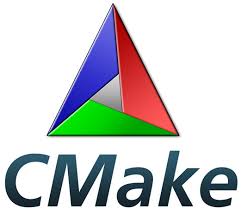How To Install CMake on Manjaro

In this tutorial, we will show you how to install CMake on Manjaro. CMake, an open-source cross-platform build system, simplifies the task of configuring, compiling, and linking your code. It’s an indispensable tool for anyone involved in software development. By the end of this guide, you’ll have a well-configured development environment, ready to tackle your coding projects with confidence.
This article assumes you have at least basic knowledge of Linux, know how to use the shell, and most importantly, you host your site on your own VPS. The installation is quite simple and assumes you are running in the root account, if not you may need to add ‘sudo‘ to the commands to get root privileges. I will show you the step-by-step installation of the CMake on a Manjaro Linux.
Prerequisites
- A server or desktop running one of the following operating systems: Manjaro, and other Arch-based distributions.
- It’s recommended that you use a fresh OS install to prevent any potential issues.
- SSH access to the server (or just open Terminal if you’re on a desktop).
- An active internet connection. You’ll need an internet connection to download the necessary packages and dependencies for CMake.
- A
non-root sudo useror access to theroot user. We recommend acting as anon-root sudo user, however, as you can harm your system if you’re not careful when acting as the root.
Install CMake on Manjaro
Step 1. Before running the tutorial below, make sure that our system is up to date:
sudo pacman -Syu sudo pacman -S base-devel
Step 2. Installing CMake on Manjaro.
- Installing CMake from Official Repositories
Manjaro and Arch Linux provide official repositories with pre-compiled packages. Installing from these repositories is the simplest and most recommended method. To install CMake, run the following command:
sudo pacman -S cmake
This command will fetch CMake and its dependencies from the official repositories and install them on your system.
To verify that CMake has been successfully installed, run:
cmake --version
- Installing CMake from the Arch User Repository (AUR)
Sometimes, you might need a more recent or customized version of CMake. In such cases, we can turn to the Arch User Repository (AUR).
If you haven’t already installed an AUR helper, you’ll need one. We recommend yay, a popular AUR helper. To install it, run:
sudo pacman -S yay
Now that we have yay installed, we can use it to install CMake from the AUR. Run the following command:
yay -S cmake
To confirm the CMake version you have installed, simply run:
cmake --version
This command will display the installed CMake version, helping you ensure that you have the desired version on your system.
Step 3. Troubleshooting.
While the installation process is usually straightforward, you might encounter some common issues. Here are solutions to a few potential problems:
- Dependencies Not Met
If you encounter dependency issues during installation, make sure to check the error message for details. Often, the error message will suggest which packages are missing. Install the required packages using sudo pacman -S package_name before trying to install CMake again.
- Conflicts with Existing Packages
In rare cases, CMake installation might conflict with other packages. You’ll need to resolve these conflicts by uninstalling the conflicting package or finding an alternative.
- Network Issues During Installation
If you face network issues while downloading packages, ensure that your internet connection is stable. You can also try updating your system again with sudo pacman -Syu to resolve any network-related problems.
Congratulations! You have successfully installed CMake. Thanks for using this tutorial to install the latest version of CMake on the Manjaro system. For additional help or useful information, we recommend you check the official CMake website.